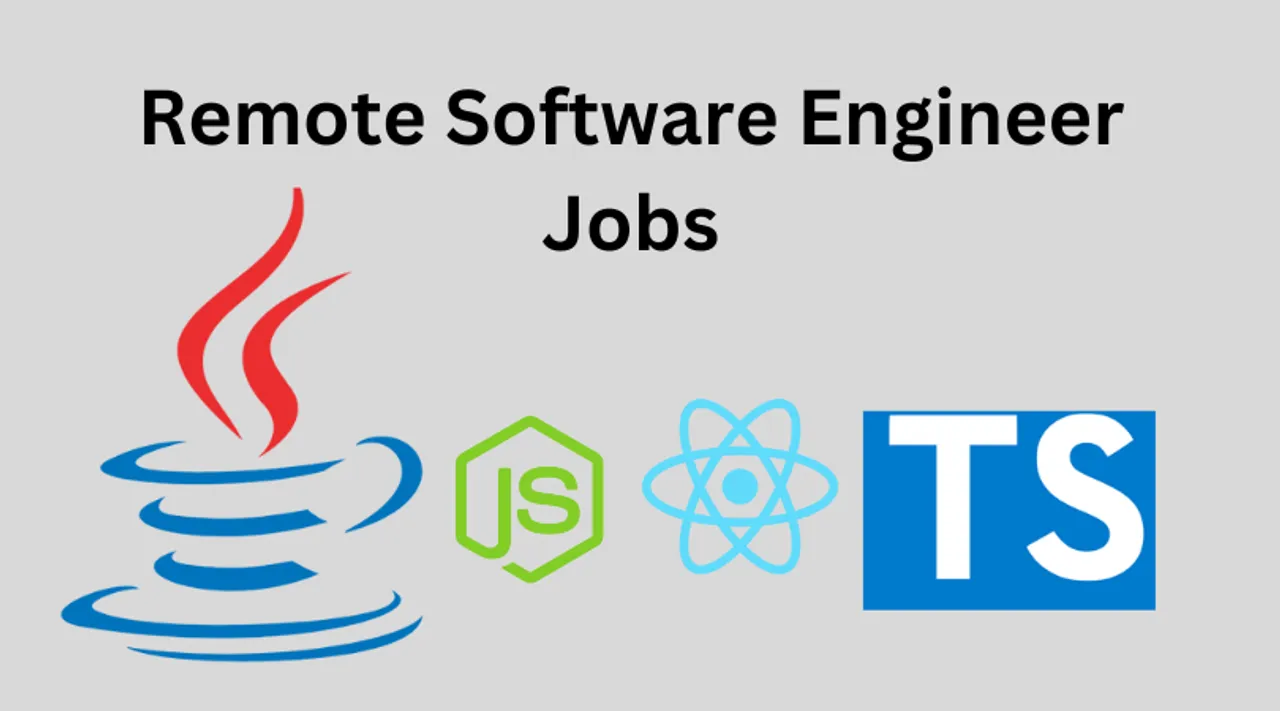Remote Software Engineer Jobs: How to Land and Thrive in a Virtual World
A detailed guide on securing remote software engineering positions, exploring industry trends, benefits, key skills, portfolio tips, networking strategies, and interview preparation.

Table of Contents
- Introduction
- The Rise of Remote Work in Software Engineering
- Benefits of Remote Software Engineer Jobs
- Challenges of Remote Work and How to Overcome Them
- Key Skills for Remote Software Engineer Jobs
- Strategies to Land a Remote Software Engineer Job
- Companies Hiring Remote Software Engineers
- How to Host and Showcase Your Projects Remotely
- Final Thoughts
Remote work has evolved very fast from a niche perk to a standard mode of operation across the tech industry. In 2025, remote software engineer jobs are more abundant than ever, driven by the need for flexible talent, global collaboration, and cost efficiency. This guide provides a comprehensive look at how you can secure a remote software engineering position and thrive in a virtual work environment.
Introduction
Remote work has transformed the way companies hire talent, especially in the field of software engineering. Today, leading tech companies and startups alike are embracing remote-first or hybrid models to tap into a global pool of skilled professionals. As a result, the opportunities for entry-level and experienced software engineers have multiplied. However, landing a remote role requires a targeted approach—one that not only demonstrates technical prowess but also highlights your ability to work independently in a virtual setting.
In this article, we will analyze the landscape of remote software engineer jobs, explore the benefits and challenges of remote work, and provide actionable strategies to help you land your ideal position.
The Rise of Remote Work in Software Engineering
The shift to remote work accelerated over the past few years, fueled by technological advancements and the global pandemic. Companies quickly adapted to virtual environments, realizing that remote work can increase productivity and reduce overhead costs. For software engineers, this shift has created new opportunities that transcend geographic boundaries.
Key Trends
- Global Talent Pool: Employers are no longer confined to hiring within a specific region. This globalization has led to a surge in competition but also opened up opportunities for engineers from diverse backgrounds.
- Cost Efficiency: Companies save on office space and operational costs, which can translate into more competitive salaries and benefits for remote roles.
- Flexibility and Work-Life Balance: Remote work offers engineers the ability to structure their day in a way that suits their personal productivity patterns, leading to improved job satisfaction and performance.
- Technology Enablers: Tools for project management, communication, and collaboration—such as Slack, Zoom, and GitHub—have become integral in managing remote teams effectively.
Benefits of Remote Software Engineer Jobs
Remote roles come with several distinct advantages for software engineers:
Flexibility
Remote work allows you to choose your working hours, provided you meet deadlines and attend virtual meetings. This flexibility can lead to increased productivity, as you can work when you are most focused.
Work-Life Balance
Without the need to commute, you have more time to dedicate to personal interests, health, and family. A better work-life balance can reduce burnout and boost long-term career satisfaction.
Global Opportunities
Remote work expands your horizons, enabling you to work for companies based in different regions or countries. This global exposure can lead to higher salaries, diverse experiences, and enhanced professional growth.
Reduced Overhead
Working from home eliminates commuting costs and minimizes the need for expensive office attire, contributing to overall financial savings.
Enhanced Productivity
Many remote workers report that fewer office distractions lead to a more productive work environment. With proper time management and a dedicated workspace, you can achieve high performance while enjoying a relaxed setting.
Challenges of Remote Work and How to Overcome Them
While remote work offers numerous benefits, it also presents challenges that you must be prepared to tackle:
Isolation and Loneliness
Working remotely can sometimes lead to feelings of isolation. To overcome this, actively participate in online communities, attend virtual meetups, and schedule regular check-ins with colleagues.
Communication Barriers
Without face-to-face interactions, misunderstandings can occur. Develop strong written and verbal communication skills and use collaboration tools to ensure clarity and alignment.
Time Management
Remote work requires discipline to avoid distractions at home. Establish a routine, create a dedicated workspace, and use productivity tools to manage your time effectively.
Overworking
The blurred boundaries between work and home can lead to longer hours. Set clear work hours, take regular breaks, and prioritize self-care to maintain a healthy work-life balance.
Key Skills for Remote Software Engineer Jobs
Securing a remote role requires more than just technical know-how. Employers also look for the ability to work independently and manage projects without constant supervision. Here are some key skills to develop:
Technical Expertise
- Core Programming Skills: Proficiency in languages such as JavaScript, Python, or Java.
- Frameworks and Libraries: Deep knowledge of frameworks like React, Angular, or Vue.js for frontend development, and familiarity with backend frameworks if your role is full-stack.
- Version Control: Mastery of Git for managing code and collaborating with distributed teams.
- Testing and Debugging: Ability to write unit tests, debug efficiently, and maintain code quality.
Remote Work Readiness
- Self-Motivation: The drive to complete tasks without external prompts.
- Strong Communication: Clear and effective written and verbal communication to collaborate in a virtual environment.
- Time Management: Proficiency in organizing tasks, meeting deadlines, and balancing multiple projects.
- Adaptability: Willingness to learn new tools and adapt to changing remote work environments.
Strategies to Land a Remote Software Engineer Job
Landing a remote role requires a proactive approach and a well-rounded strategy. Here are some steps you can take:
1. Tailor Your Portfolio for Remote Work
Your portfolio should not only showcase your technical projects but also demonstrate your ability to work independently. Include projects that:
- Highlight collaborative work using remote tools (e.g., GitHub projects with contributions from multiple developers).
- Emphasize features like responsive design, asynchronous data fetching, and cloud integrations.
- Illustrate real-world problems you solved, particularly those that required self-management and initiative.
2. Optimize Your Online Presence
A strong digital presence can significantly enhance your visibility to recruiters and hiring managers:
- LinkedIn Profile: Ensure your profile is up-to-date, includes a professional photo, and clearly states your interest in remote work opportunities. Highlight remote projects and any relevant certifications.
- Personal Website or Blog: Create a website where you can showcase your portfolio, write about your learning journey, and share insights on React and remote work.
- GitHub Repository: Regularly update your GitHub with clean, well-documented projects. Contributing to open source demonstrates your initiative and collaborative spirit.
3. Leverage Job Platforms
Focus on job boards and platforms that specialize in remote work:
- Remote Job Boards: Websites such as We Work Remotely, Remote OK, and FlexJobs list many remote software engineering roles.
- Tech Job Sites: LinkedIn, Indeed, and Glassdoor have filters to search for remote positions.
- Company Career Pages: Identify companies known for their remote work culture and apply directly through their websites.
4. Network Actively
Networking remains a critical component of the job search process, even in a remote environment:
- Online Communities: Participate in forums like Reddit’s r/reactjs, join the Reactiflux Discord, or engage in relevant Slack channels.
- Virtual Meetups and Conferences: Attend online events, webinars, and virtual conferences where you can learn from industry experts and connect with potential employers.
- Social Media: Use platforms like Twitter and LinkedIn to share your projects, comment on industry trends, and engage with thought leaders.
5. Prepare for Remote Interviews
Remote interviews can differ from traditional in-person ones. Preparation is key:
- Technical Assessments: Practice coding challenges on platforms like LeetCode, HackerRank, or CodeSignal.
- Mock Interviews: Conduct mock interviews with peers or mentors to gain confidence.
- Set Up Your Environment: Ensure you have a reliable internet connection, a quiet workspace, and a working webcam and microphone. Test your setup in advance to avoid technical issues during interviews.
- Behavioral Questions: Be ready to discuss how you manage remote work challenges, your communication style, and examples of successful remote collaboration.
6. Demonstrate Your Remote Work Capability
Employers want to be sure that you can thrive in a remote setting. Highlight any experience or attributes that demonstrate your remote work readiness:
- Independent Project Management: Describe instances where you managed projects or solved problems autonomously.
- Effective Communication: Share examples of how you maintained clear communication in previous roles or collaborative projects.
- Time Management Skills: Explain your daily routines or productivity strategies that help you stay organized and efficient.
Companies Hiring Remote Software Engineers
Many top companies have embraced remote work, offering numerous opportunities for entry-level and experienced software engineers alike. Some notable companies include:
- Tech Giants: Google, Microsoft, Amazon, and Facebook often offer remote roles or hybrid models.
- Startups and Scale-Ups: Companies like Zapier, GitLab, and Automattic have long been pioneers in remote work.
- Global Enterprises: Firms such as IBM, Dell, and Salesforce frequently hire remote software engineers.
- Specialized Remote Firms: Organizations like Toptal and InVision operate entirely remotely and actively seek talent.
By targeting companies that are known for their remote work culture, you increase your chances of finding an environment that aligns with your lifestyle and career goals.
How to Host and Showcase Your Projects Remotely
A strong online presence is crucial when applying for remote roles. Here are a few tips to ensure your projects are easily accessible:
1. Use a Reliable Hosting Platform
Platforms like Vercel, Netlify, or AWS provide seamless hosting solutions for modern web applications. These platforms allow you to deploy your projects quickly, ensuring they are always live and accessible to potential employers.
2. Optimize for Performance
Ensure that your projects load quickly and are optimized for performance. Use techniques like lazy loading, code splitting, and caching to improve the user experience. A well-performing project speaks volumes about your skills as a developer.
3. Maintain a Personal Portfolio Website
A personal website serves as a digital resume where you can showcase your best work. Include detailed case studies for your projects, describing your role, the challenges you faced, and the solutions you implemented. Make sure your website is mobile-friendly and easy to navigate.
4. Keep Your GitHub Active
Regular contributions to GitHub not only demonstrate your coding skills but also show that you’re actively engaged with the developer community. Keep your repositories well-organized, and include clear README files that explain your projects.
Final Thoughts
Landing an entry-level remote software engineer job in 2025 is an achievable goal if you approach it methodically. By mastering core technologies, building a compelling portfolio, gaining practical experience, and actively networking, you can position yourself as a competitive candidate in a crowded job market.
Remember to:
- Invest in continuous learning and keep up with the latest industry trends.
- Tailor your application materials to highlight your remote work capabilities.
- Prepare thoroughly for remote interviews to showcase both your technical and soft skills.
- Leverage online platforms and communities to expand your professional network.
Remote work offers flexibility, global opportunities, and a chance to work with diverse teams across the world. Embrace this evolving landscape and make the most of the opportunities available. Your first remote software engineer job could be just around the corner—stay persistent, keep learning, and never stop refining your craft.
Related Posts

Where to Find React Jobs: Best Platforms And Strategies for 2025
Looking for React developer jobs? Discover the best platforms, job boards, and strategies to land remote and entry-level React jobs in 2025.

TypeScript vs JavaScript: Which One Should You Use in 2025?
Learn the key differences between TypeScript and JavaScript, their pros and cons, and when to use each for web development.

What Are Third Party Libraries Used In React js: A Look At Essential Third-Party Libraries for Enhancing Your React.js Projects
Discover the top third-party libraries that can elevate your React.js development, streamline workflows, and enhance application performance.